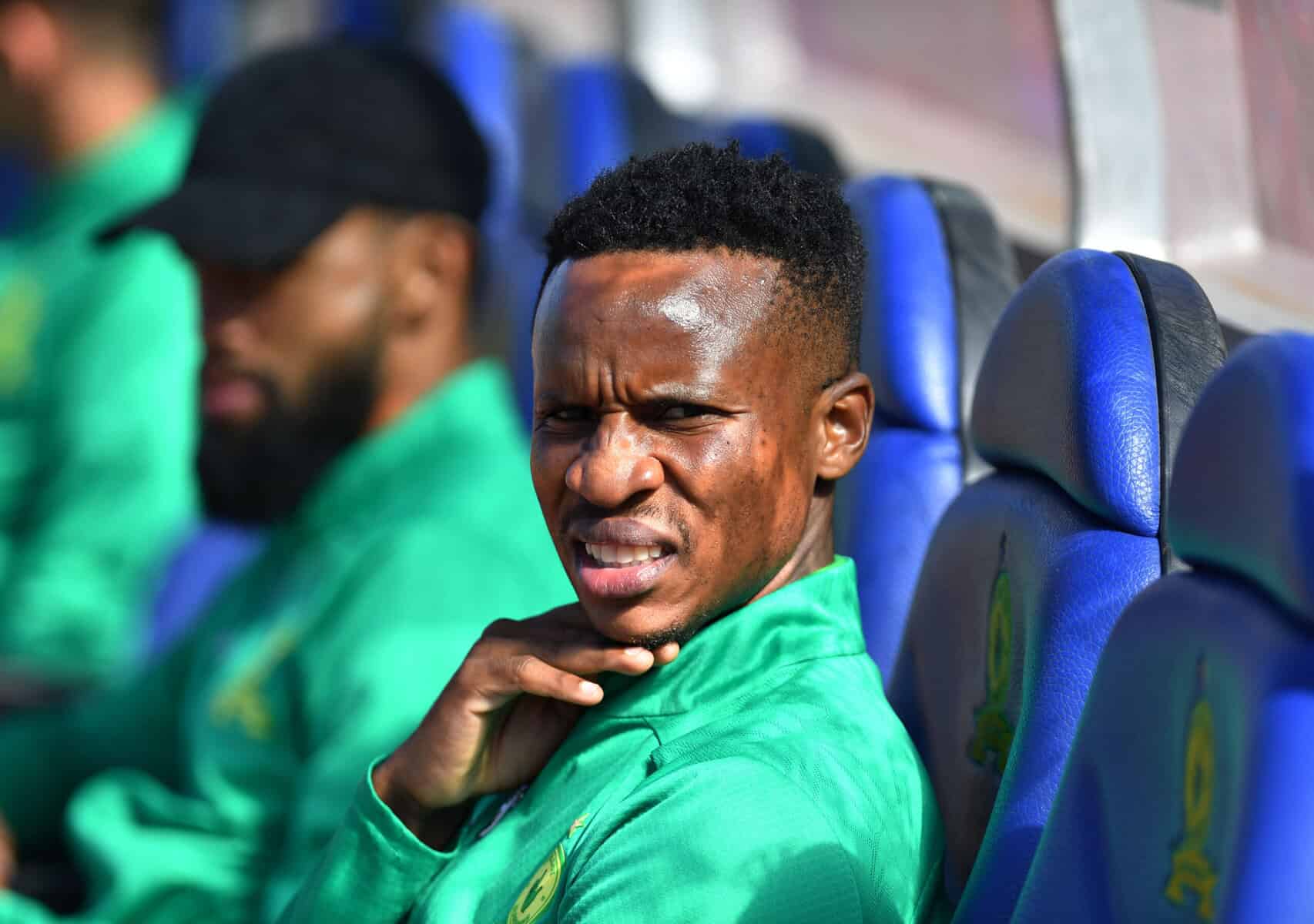Bafana Bafana World Cup Qualifiers and FIFA Sanctions has become the defining storyline of South African football in 2025, a campaign balanced delicately between stirring performances on the pitch and a damaging administrative blow off it. South Africa swept aside Lesotho in Bloemfontein and held their nerve against Nigeria, yet a FIFA ruling over an ineligible player has turned the race in Group C into a high‑wire act.
A night in Bloemfontein that felt like liftoff
Against Lesotho in Bloemfontein, South Africa looked like a side accelerating toward the 2026 FIFA World Cup. An early head knock for Nyiko Mobbie forced an immediate change, Zuko Mdunyelwa arrived inside six minutes, and the hosts settled quickly after the scare.
On 16 minutes, Mohau Nkota found the calm finish that every debutant dreams of, steering Aubrey Modiba’s lofted cross beyond Sekhoane Moerane for his first international goal. It was a scrappy half filled with fouls, but the moment belonged to Nkota, and to the sharp service of Modiba.
The second half brought clarity and control. In the 63rd minute Modiba’s drive was parried and Lyle Foster reacted first to poke in the rebound. Four minutes later, Foster slid a clever pass into Oswin Appollis, who rolled a clinical low finish for 3–0, a quickfire salvo that broke Lesotho’s resistance.
South Africa’s numbers reinforced the eye test, they owned 68 percent possession and completed 582 passes to Lesotho’s 270. In the final third, Foster and Appollis were relentless, and Bafana racked up 55 entries compared to Lesotho’s 49, a sign of growing authority in the business end of qualifying.
Nigeria test shows steel
Four days later, Nigeria arrived in Bloemfontein and the cauldron of a top‑table qualifier produced a match of nerve and margins. South Africa struck first through pressure and persistence, William Troost‑Ekong turned into his own net on 25 minutes after Nkota’s surge and cross unsettled the Super Eagles back line.
Nigeria hit back just before the interval when Calvin Bassey forced the ball home from close range. From there it became a test of grit and structure, and 19‑year‑old defender Mbekezeli Mbokazi delivered a poised, Man of the Match display, he kept Ademola Lookman quiet and embodied the defensive resilience that has underpinned this run.
Elsewhere, Benin battered Lesotho 4–0, and what had briefly been a six‑point cushion at the summit shrank to three by night’s end. The table tightened, and the stakes rose again for Hugo Broos and his players, a reminder that in Group C every slip is punished.
The sanction that changed everything
Then came the twist that reframed the group. FIFA’s Disciplinary Committee ruled that South Africa fielded an ineligible player, Teboho Mokoena, in the March 21 match against Lesotho. The game was awarded as a 3–0 forfeit to Lesotho, SAFA was fined CHF 10 000, and Mokoena received a warning, all under Article 19 of the FIFA Disciplinary Code and Article 14 of the World Cup preliminary regulations.
In a single stroke, the decision removed the points South Africa believed they had earned and thrust them into a neck‑and‑neck finish with Benin. The official picture now has Bafana tied on 14 points with Benin but behind on goal difference, with Nigeria and Rwanda both on 11 and still dangerous. The margin for error, already thin, has almost disappeared.
SAFA responded swiftly and firmly. The association said it was deeply disappointed with what it called an unprecedented outcome delivered by a single‑member panel without reasons and without an opportunity to present legal arguments. SAFA confirmed it had requested written reasons and intends to appeal to the FIFA Appeals Committee within the 10‑day window, while also apologising to the nation for the administrative oversight and urging supporters to rally behind the team.
How we got here
The core of the case is straightforward, FIFA says Mokoena should have been serving a suspension for two previous yellow cards when he featured against Lesotho. The ruling aligns with established practice, if an ineligible player appears, the match is forfeited 3–0 unless the original result was more damaging to the offending team.
There is precedent too, in 2017 Nigeria were punished for fielding Abdullahi Shehu in a World Cup qualifier against Algeria, the match was awarded 3–0 to Algeria. That earlier case did not affect Nigeria’s qualification path, but for South Africa the impact is immediate and severe, a shift that turns a strong campaign into a sprint that must be won from the front.
The decision has also sparked debate about timing and responsibility. Public commentary has highlighted the long span between bookings and the uncertainty that can surround suspension tracking, yet the regulatory bottom line remains, player eligibility is sacrosanct, and the consequences bite. Sport Minister Gayton McKenzie called the episode deeply regrettable and an embarrassment, while promising an internal look at how the mistake occurred.
The table and the road ahead
After the deduction, the standings were reshaped, Benin top on 14 points, South Africa second on 14 with a slightly inferior goal difference, Nigeria and Rwanda on 11, Lesotho on 9, Zimbabwe on 4. It is a table that rewards composure as much as quality with two rounds left.
What South Africa must do is clear in theory and daunting in execution. They need to win both remaining qualifiers, Zimbabwe are next in Durban on October 10, then Rwanda in Mbombela, and they need help, Benin must drop points against Rwanda away or Nigeria away. If both nations finish level, goal difference will be decisive, and for now Benin have the narrow edge.
There is also the cold reality of the fallback route. Second place offers no guarantees, only the four best runners‑up across Africa will get a playoff chance, a far less forgiving path where a single moment can end a dream. The simplest way forward for Bafana Bafana is to keep destiny in their own hands, stack six points, and leave nothing to chance.
The voices in the arena
Hugo Broos did not sugarcoat the lapse, the head coach admitted the team did something bad, something they should not do, and urged a shift in focus to the final fixtures. It was a candid note that matched the mood, accountability paired with resolve, a call to concentrate on what can still be controlled.
Minister McKenzie went further with his assessment, describing the deduction as deeply regrettable and an embarrassment, then tried to steady the ship with a message that the setback is only a bump in the road. SAFA’s own statement echoed that pivot, an apology, an appeal planned, and a promise to keep supporting the players and technical team through a crucial finish.
What it will take in October
South Africa’s blueprint is built on familiar pillars. Ronwen Williams brings leadership and calm, the back line has been reshuffled but remains composed, and the front trio have found a rhythm that suits tournament‑style pressure. Foster is ruthless when the ball drops in the box, Appollis carries a sharpness in the channels, and Modiba’s delivery has been a decisive weapon.
- this is how it’s done, start on the front foot and compress the field, turn early possession into chances that ask immediate questions of Zimbabwe and Rwanda
- this is how it’s done squared, control transitions and avoid cheap cautions, discipline will matter because one more suspension misstep could be fatal
- this is how it’s done cubed, sharpen set pieces and protect the goal difference edge that may decide the group.
Specifics from Bloemfontein offer a template. The 68 percent share of the ball against Lesotho came with purpose, direct entries into the final third and quick combinations around the box. Repeating that balance, assertive without becoming reckless, will define the coming two matches.
Defensively, the emergence of Mbokazi has been priceless. The 19‑year‑old’s handling of top‑level attackers against Nigeria pointed to a maturity beyond his years, and with Thabo Moloisane’s knock prompting more reshuffles, that kind of poised flexibility is gold. Keeping the back door shut lets the attack take measured risks, the margin between glory and regret is likely a single goal.
Lessons that outlast a qualifying cycle
There are administrative lessons here too. The sanction has exposed gaps that need closing at SAFA, and the seven‑month lag to resolution has frustrated more than one camp across the continent. Clarity and speed help everyone, especially when decisive fixtures loom and plans must be made in good faith.
For supporters, however, the focus is the grass, not the boardroom. The image that endures is Nkota wheeling away in Bloemfontein, Foster bundling home a striker’s goal, Appollis tucking away a third, Williams barking instructions, and a teenager in Mbokazi standing tall under pressure. This is a team that has found ways to wear pressure rather than be crushed by it.
The story still within reach
South Africa’s dream of a first World Cup since 2002 is alive, fragile, and still in their hands. Win twice, keep the head, and let the rest of Group C feel the squeeze, that is the task. The fine margins of a sanction have made the path harsher, but not impossible.
What comes next will be about execution and belief. If Bafana Bafana can carry the control they showed against Lesotho and the resilience they summoned against Nigeria into October, this campaign can still finish with a place on football’s biggest stage. The script is not finished yet, and the final pages are waiting to be written in South African ink.






